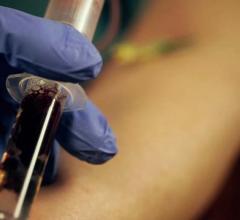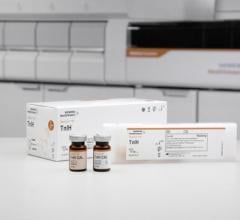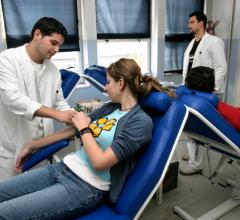
Statins are lifesaving medications — they have been shown to greatly reduce heart attack and other related events by more than 30 percent — yet patient compliance is a significant problem.[1] Studies estimate that up to 50 percent of patients with cardiovascular disease stop taking their statin medications as directed.[2] Many do so because they experience statin induced myopathy, the onset of muscle aches, spasms and pain associated with statin therapy. In a study published in the Journal of Clinical Lipidology, 60 percent of people who stopped taking a statin cited muscle pain as the primary reason.[3]
Genetic testing can determine how a statin will be processed in the patients’ body. The SLCO1B1 (Solute Carrier Organic Anion Transporter 1B1) genotype has been identified by the University of Oxford as one of the key genes responsible for processing statins in the liver. SLCO1B1 is critical to the body’s uptake and metabolism of statins. In fact, an association has been established between statin induced myopathy and variations in the SLCO1B1 gene. One such test that I use in my practice is from Boston Heart Diagnostics. Testing in advance of prescribing statin therapy allows me to tailor treatment and empowers my patients to confidently take control of their heart health.
Roughly 25 percent of the population carries one or two copies of the SLCO1B1 variants, which means they have up to a 17-fold increased risk for developing statin induced myopathy and having less statin effectiveness.[4] SLCO1B1 genotype testing identifies those patients who are at a higher risk of developing statin induced myopathy due to a variation on their SLCO1B1 gene. The SLCO1B1 test uses a polymerase chain reaction to identify genetic variants: three genotypes – normal (T/T), decreased (T/C), and markedly decreased (C/C) – can be detected on the SLCO1B1 gene.
Compliance to statin medication rises when my patients see the precise relationship between their test results and their treatment plans. In an analysis of more than 2,600 patients, those who received Boston Heart’s SLCO1B1 test, in combination with the company’s cholesterol balance test, saw a 36 percent drop in LDL-C levels in less time compared to only an 18 percent drop in those who received alternative treatment methods.[5]
This test ultimately helps me determine the probability that my patients will tolerate their statin, thus reducing the trial-and-error that many patients so often go through when prescribed statin therapy. I’ve seen a lot of patients experience negative side effects, or not have their statin work to its fullest potential, the SLCO1B1 testing gives me another viewpoint on my patients’ statin treatment.
More specifically, the SLCO1B1 test reassures my patients that they are either indeed at risk for statin-induced myopathy, and that’s why they have been experiencing side effects, or that they do not have increased risk, at which point they can be confident in the statin they’re on. For example, one of my patients was on a fat soluble statin and I wasn’t certain that his medication was working to its fullest potential. I ordered the SLCO1B1 testing for him and found he was a decreased statin metabolizer meaning that water-soluble statins, not fat-soluble, would work better for him. After switching him over to a water-soluble statin, his cholesterol was near perfect within three months.
Knowing my patients’ SLCO1B1 gene and risk of statin induced myopathy allows me to prescribe precisely the right statin (fat or water-soluble) at the right dose (standard or low) for each patient the first time.
Editor’s note: Kevin P. Greene, M.D., leads two private practices in internal medicine out of Plantsville, Connecticut and Indialantic, Florida. He received his undergraduate degree from Yale University in 1990 and his medical degree from Georgetown University School of Medicine in 1995. He completed his residency at the University of Connecticut and later went to work at the Community Health Center of New Britain, Connecticut, before moving on to private practice.
References:
1. ”The Science behind the Boston Heart Statin Induced Myopathy (SLCO1B1) Genotype Test." <Boston Heart Statin Induced Myopathy (SLCO1B1) Genotype>. Boston Heart Diagnostics, n.d. Web. 2015. http://www.bostonheartdiagnostics.com/science_portfolio_statin.php
2. Davidson MH, Sun SX, Nag SS, et al. Risk factors for discontinuation of statin medications: evidence from a large national pharmacy claims database. Circulation. 2007;116(16 suppl):II-847. Abstract 3726.
3. Wei MY, Ito MK, Cohen JD, Brinton EA, Jacobson TA. Predictors of statin adherence, switching, and discontinuation in the USAGE survey: understanding the use of statins in America and gaps in patient education. J Clin Lipidol. 7(5):472-483.
4. The SEARCH Collaborative Group. SLCO1B1 variants and statin-induced myopathy – a genomewide study. N Engl J Med. 2008;359(8):789-799.
5. Boston Heart Diagnostics. Database of over 250,000 samples.


 October 09, 2019
October 09, 2019 









